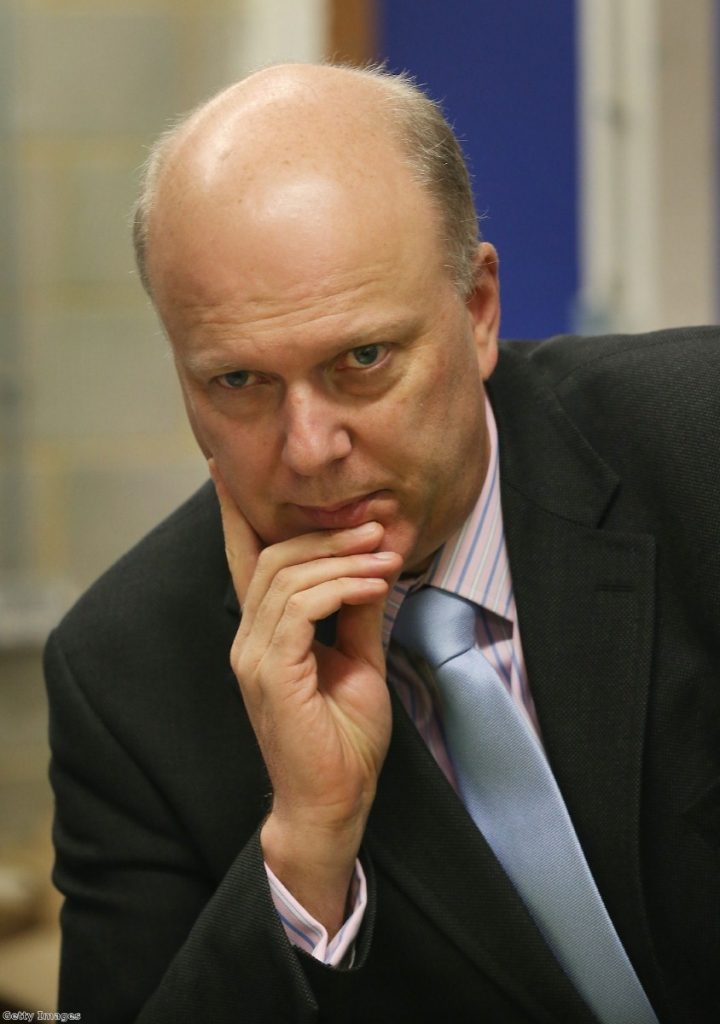Just how deep does Grayling’s hate of the Howard League go?
Apparently the mere mention of the Howard League is enough to make the justice secretary's blood boil. Chris Grayling dug in his heels on the prisoner book ban, despite wary political analysts advising him to let it drop, apparently out of a personal hatred toward the group. He rejected an investigation into rape in prison when he found out the Howard League was behind it. He's even said to have stormed out of a speaking event organised by Tory MP Rory Stewart when the author of a report praised the group.
Now the Ministry of Justice is refusing to even reveal how often the group has been mentioned in internal correspondence.
Prison reformers fired off a Freedom of Information request a few weeks back, asking for civil servants to check their internal systems electronically for mentions of the group. 'No can do', came the response.
"I am afraid that I am not able to confirm whether the Ministry of Justice holds the
information you have requested," the department wrote back. "On this occasion, the cost of determining whether we hold the information would exceed the limit set by the Freedom of Information Act and, as a result, I am afraid will not be taking your request further."


Apparently responding to this simple request would cost more than £600 ("equivalent to 3½ working days' worth of work, calculated at £25 per hour").
This is standard operating procedure for the MoJ. Shadow justice secretary Sadiq Khan fired off a raft of parliamentary questions about Grayling's draconian prison reforms last month only to have them all dismissed as too expensive to answer. Some of them were on the type of thing you might expect the MoJ to be on top of, like how contraband enters prisons.
"To identify the manner in which the contraband entered the prison and any subsequent referral to the police would require a manual interrogation of incident reports. This could be achieved only at disproportionate cost," came one response.
"To determine the numbers of staff engaged in this activity for the periods in question could only be determined by asking each prison to calculate these numbers using historic records. This cannot be done without incurring disproportionate cost," came another.
Of course, this is a standard government tactic for questions it doesn't like. The Home Office refuses to publish how much it spends on the legal battles of the notoriously litigious Theresa May, despite the fact the bill probably runs into hundreds of millions of pounds. Again, the costs of finding the information are considered "disproportionate".
Of course, the real disproportionate cost comes when ministers appeal unwinnable legal cases without any fear of financial scrutiny. That's an expensive ignorance to labour under.
The MoJ's response claims they can only search electronically for the headline of an email, not the body of a message. I honestly don't know how I would find anything if that was the restriction on my email system. They may as well use fountain pens and magnifying glasses.
But the real problem is more serious than the ineptitude of government IT systems. Grayling's department has now pulled down the blinds. He competes only with Iain Duncan Smith for closing down opposing voices and evidence.
The opaque nature of the department is problem enough in itself. But what's really concerning is that we still don't know how severely Grayling's hatred of the Howard League is affecting his ability to do his job. His decision to kill off the prison sex investigation may be keeping a cover on a massive public health disaster. We just don't know. It seems as if the British system is relatively rape-free, but then that's what they said about the American system until they investigated it and found the most appalling abuse underneath the officially-enforced silence. Grayling is even reported to have demanded the removal of condoms from jails until his advisors stepped in to warn him of the catastrophic health consequences which would follow.
No matter how many Freedom of Information requests they deny or parliamentary questions they shoot down, a picture is emerging of Grayling's department. It appears to be defensive, uninterested in evidence, and unwilling to subject itself to scrutiny.









